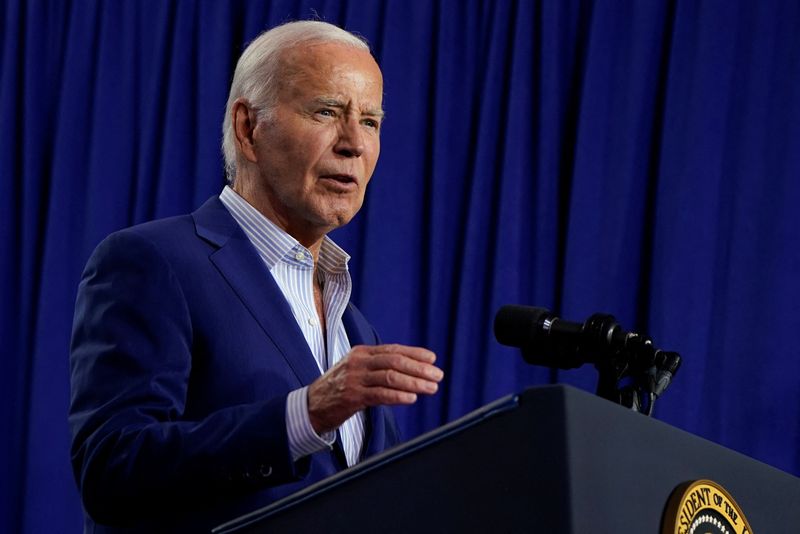Business
5 ways to keep work from getting in the way of your relationship


Do you spend more time in bed with your laptop, answering Slack messages, than you do with your partner? Then it may be time for a reality check.
When our romantic relationships carry too much of the burden of our professional life, it can lead to resentment, jealousy, and, ultimately, a breakup—especially when we expect our partners to carry an unfair share of our work stress.
“We bring a set of expectations that our intimate partners are a source of emotional support, and that we can be our most authentic versions of ourselves,” Alexandra Solomon, a Chicago-based psychologist and host of the podcast Reimagining Love, tells Fortune. And while it’s a “blessing” when find that, she adds, “It comes back to bite us when we’re not mindful of the impact that our burnout has on how we’re showing up for them.”
It’s a widespread problem: In Deloitte’s Workplace Burnout Survey, for example, 83% of respondents said burnout from work can negatively impact their personal relationships. Similarly, in Headspace’s 2024 Workforce State of Mind report, 71% of employees shared that work stress has caused a personal relationship to end.
A big part of the problem, Solomon says, is that the boundary between work and home life, especially with remote and hybrid work structures, can be difficult to draw. That’s why it’s important to set time and energy aside for each facet of our lives, including time to connect with our partners––outside of discussing work projects.
Here are five tips for ensuring work burnout doesn’t squash the romance in your life.
1. Resist the urge to compare
Often, when both partners are having a difficult time at work, Solomon says there is a tendency to become competitive—with a workplace-stress Olympics, if you will.
“The conversation can begin like, ‘I want to share my day with you because you are a really important sounding board and safe place,’” she says. “But the conversation can have a sneaky way of morphing into a comparison of who has it worse.”
Solomon suggests resisting the urge to compare your experience with your partner’s, and to remember that all stress—including the kind that comes about in this type of competition—is unwanted and can have a negative impact on our health.
2. Set ‘micro rituals‘
Creating ways to symbolize the transition from working time to home time—even, if not especially, if you work from home—can be pivotal for the strength of your relationship.
“For some people, it’s their commute home, or when you’re changing clothes from your workday, almost ritualizing, ‘I’m taking off the day, I have done my job, I showed up, I did what I was supposed to do. It will be waiting for me tomorrow,” she says. “Whatever kind of ways you can set a micro ritual to transition from the workday to time with your partner,” she says, it will be worth it.
3. Performance reviews aren’t just for the office
Performance metrics, desired raises, and a basic need to stay employed are all reliable motivators when it comes to doing a great job at work. But what about staying motivated at home?
“We don’t think, ‘A year from now I want to feel more connected to my partner,’ ‘I want us to have accomplished this goal in our life,” Jenna Glover, licensed psychologist and Chief Clinical Officer at Headspace, tells Fortune. But, she stresses, maybe we should.
“Part of that is intentionality and really bringing it to that [home] space,” Glover explains. “And when people do, they’re able to be successful in both work and relationships.”
Glover suggests relationship performance reviews as one way to ensure we don’t lose ourselves in work or miss out on important time with our partner.
“Take time to say, ‘There is not a template built for what it means to be successful in my relationship like a work performance review, but I’m going to take the time to identify what that would actually look like,’” she suggests.
And don’t worry about it being too formal. Instead, Glover says the point is to focus while sitting down with your partner and sharing goals and expectations for your family, your career, and your one-on-one connection.
4. Salvage ‘romance’ by defining it expansively
It’s true that stress impacts libido. According to the Cleveland Clinic, stress can reduce your sex drive by taking your mind off sexual desire, and chronic stress can interfere with hormone levels, which also results in a lower libido.
“Nobody’s desire increases because of pressure,” says Solomon.
But romance and connection with your partner do not have to start and end with sex, she says.
“The definition of ‘romantic’ is the stuff we do that helps us feel connected,” she says. “And there are lots of ways to feel connected besides sex.”
She suggests making small but meaningful nods toward intimacy and toward counteracting your work burnout—playing a game with your partner, dancing in the kitchen together, or lighting candles while you eat dinner, for example.
“Part of it is pushing back,” Solomon says, “and saying, ‘No, my job does not get to take both my time and my sexual energy.’”
5. Try to avoid putting your partner on the defensive
If you feel like you’re missing out on time with your partner due either one of your jobs (or both), a gentle way to start trying to counteract that is to ease into a conversation about it: How about an evening with no screens? What about scheduling a fun outing? Your partner cannot always read your mind or body language for clues as to what you want, Solomon says.
But pointing fingers and laying blame, she adds, can lead to them feeling attacked and guilty, putting them on the defense. Instead, take a beat to calmly tell your partner you miss their undivided attention.
Plus, she stresses, work burnout is often, if not always, about the company culture rather than the employee. So while it can be easy to put the blame on your partner for answering messages about work after hours, it’s also up to their employer to adhere to off-the-clock boundaries.
“[Your partner] didn’t create the corporate culture that demands that people are available at all hours, or refuses to hire the right number of people to do the work, or whatever the dynamics are in the organization,” she says. “So I think that part of it, too, is making sure to put responsibility where responsibility goes.”
In fact, nearly 70% of professionals, according to Deloitte, feel their employers are not doing enough to prevent or alleviate burnout within their organization, and 21% say their company does not offer any programs or initiatives to prevent or alleviate it.
“People need to work. So it’s really important for employees to think about, ‘What is my work experience like?’ and hopefully work is there to support the quality of your life and not to degrade it,” says Glover.
She adds that we all have limited resources—limited time, limited energy—and that putting “too much” toward a job will ensure you won’t have a good work-life balance.
And parsing that out is something that gets more and more difficult, Solomon says, as “work-life balance” terminology itself can be deceiving.
“In our minds, we have this belief that these are two separate spheres,” she says. “But the boundary between home and work is actually quite permeable.”
More on marriage and relationships:
Business
UK polls point to a big Labour win. The party fears voter complacency

Labour leader Keir Starmer poses for photos as he visits the Vale Inn on June 27, 2024 in Macclesfield, United Kingdom. In the final week of campaigning, Labour outlined its plans to expand opportunities for young people.
Cameron Smith | Getty Images News | Getty Images
LONDON — There’s been one main narrative since the U.K.’s Conservative Prime Minister Rishi Sunak called a general election back in May — that the opposing Labour Party would win the vote with a landslide.
While voter polls may have differed in scale and methodology, the results have pointed in one direction, showing that the center-left Labour Party has around a 20-point lead on the Conservatives. Labour is on track to win around 40% of the vote while roughly 20% of the support is projected to go to the Tories, according to a Sky News poll tracker.
Reform UK, led by arch-Brexiteer Nigel Farage, is seen with 16% of the vote, after eating away at Tory support, while the Liberal Democrats are seen gaining around 11% and the Greens with 6%. The Scottish National Party is predicted to win 2.9% of the vote.
Labour candidates and leader Keir Starmer have been keen to play down the level of support that the party enjoys, fearing voter complacency and the appearance of “having it in the bag” — a stance that could prompt voter apathy and a lower turnout of supporters at the polls, or a backlash from Conservative-inclined sections of the electorate.
“The Labour Party wants to be able to be convince voters that it’s absolutely central that they turn out and vote, because otherwise the Tories will win, and the Tories are desperate for people to think that they have still got a chance, and therefore it’s worth turning up,” Britain’s top polling expert John Curtice told CNBC.
Question marks have risen in the past over the accuracy of British voter polls, with previous projections over or underestimating support for various political parties. The errors have often come about because of inadequate sampling or of factors that are harder to control, such as voters being “shy” when polled on which party they intended to support.
Labour Party leader Sir Keir Starmer speaks ahead of the U.K.’s general election on July 4, 2024.
Anthony Devlin | Getty Images News | Getty Images
This year, however, experts tend to agree that the polls show such a swing to Labour that, even if the scale of support were wrong, the overall result would be the same: a convincing win for the opposition party.
“My attitude is [that] a poll should be taken but not inhaled,” Curtice said wryly. “The point is, you shouldn’t be looking at them to provide you with pinpoint accuracy, they should give you a reasonable indication of the direction of travel.”
“It just so happens that because this is an election in which apparently one party is so far ahead, much as [it was] in 1997, the polls could be quite a bit out — but nobody will notice,” he noted, referencing the year when the Labour Party won a landslide against the Conservatives, ending the latter party’s then 18-year rule.
Labour ‘spin’?
The Labour Party itself is understandably keen to downplay the polls, with a spokesperson telling CNBC that the party doesn’t comment on projections, “as they vary and fluctuate.”
“Instead, we’re working hard to take our message of change to voters ahead of the only poll that matters, on 4 July,” the spokesperson stated.
On Monday, Keir Starmer said no vote should be taken for granted, asking his supporters to continue campaigning until polls closed on Thursday.
“The fight for change is for you, but change will only happen if you vote for it. That is the message we have to take to every doorstep these last few hours and days until 10 o’clock on Thursday night.”
“Nothing must be taken for granted, every vote has to be earned. The polls don’t predict the future, we have to get out there,” he told campaign supporters in Hitchin.
Labour leader Sir Keir Starmer during a visit to Hitchin, Hertfordshire, while on the General Election campaign trail. Picture date: Monday July 1, 2024.
Stefan Rousseau – Pa Images | Pa Images | Getty Images
Labour’s former campaign and communications directors, Alastair Campbell, one of the chief strategists behind the rebranding of the party in the 1990s as ‘New Labour’ ahead of its monumental election win in 1997, told CNBC that he doubts current voter polls.
“I get really worried about about the way that these election debates are now unfolding, virtually everything in the debate at the moment is about these opinion polls,” he told CNBC two weeks ago.
“Apart from a few postal votes, nobody’s voted yet. And I just do not for one second believe that the Conservatives are going to get virtually wiped out, I just don’t believe it,” he said.
“I just think there’s something going very, very wrong with these polls, I could be completely wrong, and it’s true that Labour have been consistently ahead. But I just wish that, in our election periods, we would talk less about polls and more about what the parties are saying.”

Polling expert Matt Beech, director of the Centre for British Politics at the University of Hull, said Campbell’s position was designed to persuade Labour-inclined voters to cast their ballots.
“They want to make sure that they get as big a majority as possible. They’re all very much aware of [the lead-up to the election in] 1992 with the phenomenon of ‘shy Tories,’ when the polls said Labour would win and they didn’t …. [But] they’re not actually that genuinely worried about that. What they want to have a 1997-like landslide tsunami,” Beech told CNBC.
He added, “So if you keep banging on that drum [that the polls are not correct], you’re going to say to Labour-inclined voters, ‘please go out and vote.’ But it’s not that ‘we’re actually scared we’re not going to win, we are going to win comfortably. But we want a majority that enables us to push our agenda and we want this win to mean that we’re there for two terms.’“
Business
Ad-supported Murdoch Netflix rival to launch in the UK

Rupert Murdoch’s Fox Corporation is entering the UK’s highly competitive free, ad-supported video streaming market.
Tubi will compete with the likes of Netflix, Disney+, ITVX, Channel 4’s streaming platform as well as the BBC iPlayer.
The platform has been quickly gaining market share in the US where, according to Fox, it has almost 80 million monthly active users.
In the UK, Tubi says it will offer more than 20,000 films and TV series, including content from Disney, Lionsgate, NBCUniversal and Sony Pictures Entertainment.
The platform will also include a selection of British, Indian and Nigerian content.
UK viewers will be able to access content on the Tubi webpage and via a smartphone app.
Fox Corporation bought Tubi in 2020 for $440m (£348m) as the US media giant looked to attract younger audiences.
In recent years, streaming companies like Netflix, Amazon Prime Video and Disney+ have launched ad-supported services and raised subscription prices as they tried to boost revenues.
The moves came as they faced pressure to spend more money to grow their libraries of content as they try to attract more customers in an increasingly competitive market.
In March, Mr Murdoch’s TalkTV network announced that it would stop broadcasting as a terrestrial television channel and became a strictly online service.
The network launched in 2022 but struggled to attract viewers on its linear platform.
Mr Murdoch had hoped the network would shake up the broadcasting establishment by offering an opinion-led alternative to established outlets.
The media tycoon played a pivotal role in the development of the UK’s broadcasting industry by launching Sky in 1984.
Some commentators saw TalkTV as an attempt by Mr Murdoch to recreate his success with Sky.
Mr Murdoch’s 21st Century Fox sold its 39% stake in Sky to NBCUniversal’s owner Comcast in 2018 after losing a battle for control of the network.
Business
Biden knocks Supreme Court ruling on presidential immunity By Reuters

By Andrea Shalal
WASHINGTON (Reuters) -U.S. President Joe Biden on Monday criticized the Supreme Court ruling on presidential immunity that was seen as a win for his rival, former President Donald Trump, in forceful remarks from the White House.
The U.S. Supreme Court found on Monday that Trump cannot be prosecuted for any actions that were within his constitutional powers as president, but can be for private acts, in a landmark ruling recognizing for the first time any form of presidential immunity from prosecution.
“This nation was founded on the principle that there are no kings in America,” Biden said, adding that no one is above the law. With the Supreme Court decision, he said, “That fundamentally changed.”
Biden is running for re-election against Trump and has been sharply critical of his rival’s actions related to the Jan. 6, 2021, raid on the U.S. Capitol by Trump’s supporters, who believed Trump’s false claims that he had won the 2020 election.

Biden, 81, was making his first set of remarks at the White House since his shaky debate against Trump last week led to calls for him to step aside as the Democratic Party’s standard-bearer for the election.
After he stumbled over his words on the Atlanta debate stage, his remarks and comportment will be scrutinized for signs that he is up to the job of running for re-election and of governing the country for four more years.
-

 African History5 years ago
African History5 years agoA Closer Look: Afro-Mexicans 🇲🇽
-

 African History5 months ago
African History5 months agoBlack History Facts I had to Learn on My Own pt.6 📜
-

 African History5 years ago
African History5 years agoA Closer Look: Afro-Mexicans 🇲🇽
-

 African History1 year ago
African History1 year agoMajor African Tribes taken away during the Atlantic Slave Trade🌍 #slavetrade #africanamericanhistory
-

 African History1 year ago
African History1 year agoCameroon 🇨🇲 World Cup History (1962-2022) #football #realmadrid #shorts
-

 African History1 year ago
African History1 year agoPROOF AFRICAN AMERICANS AIN'T FROM AFRICA DOCUMENTED EVIDENCE
-

 African History5 months ago
African History5 months agoBlack History Inventors: Mary Kenner 🩸
-

 African History5 months ago
African History5 months agoMr Incredible Becoming Canny/Uncanny Mapping (You live in Paraguay 🇵🇾)






























